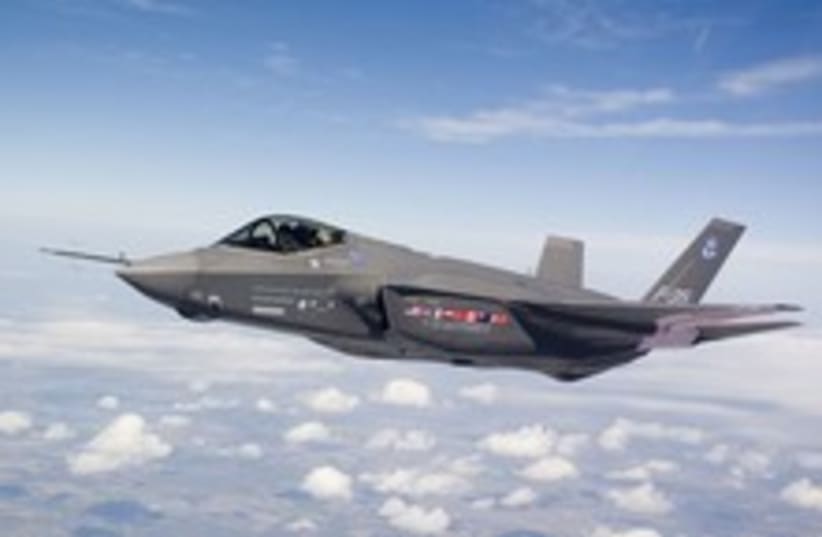The stealth-enabled F-35 Joint Strike Fighter, which Israel ordered from the United States earlier this month, is reportedly two years behind schedule, according to an internal Pentagon probe into the multi-billion dollar project.
The probe was conducted by the Pentagon's Joint Estimate Team (JET) and its findings were revealed on Saturday by the Congressional Quarterly. According to the report, the JET panel concluded that the fighter jet will not be ready to move out of development and into full production until 2016, two years later than initially scheduled.
Earlier this month, the Israel Air Force submitted an official Letter of Request for 25 aircraft. The assumption in the IAF at the time was that if a contract were signed by the beginning of 2010 it would begin receiving the aircraft in 2014. If the Pentagon report is correct, then Israel's receipt of the planes will also likely face major delays.
News of the JET findings came just days after Defense Secretary Robert Gates scored big legislative wins when the Senate voted convincingly to end production of the high-priced F-22 jet fighter. The air force, navy and Marine Corps plan to buy more than 2,400 F-35s.
Pentagon spokesman Geoff Morrell told the CQ that there was no delay in the completion of the first production aircraft, due next year. He said that additional testing was needed to determine whether full production would be able to begin on schedule.
"The JET is not the gospel. It is but one view, albeit an important one, of our testing program," Morrell told the paper. "The program office has a very different view. The truth is that we don't know which will prove to be correct, but there's no reason to believe our testing regime will result in the kind of delays the JET is predicting."
| More about: | Israel, Robert Gates, F-35 Lightning II, United States |
